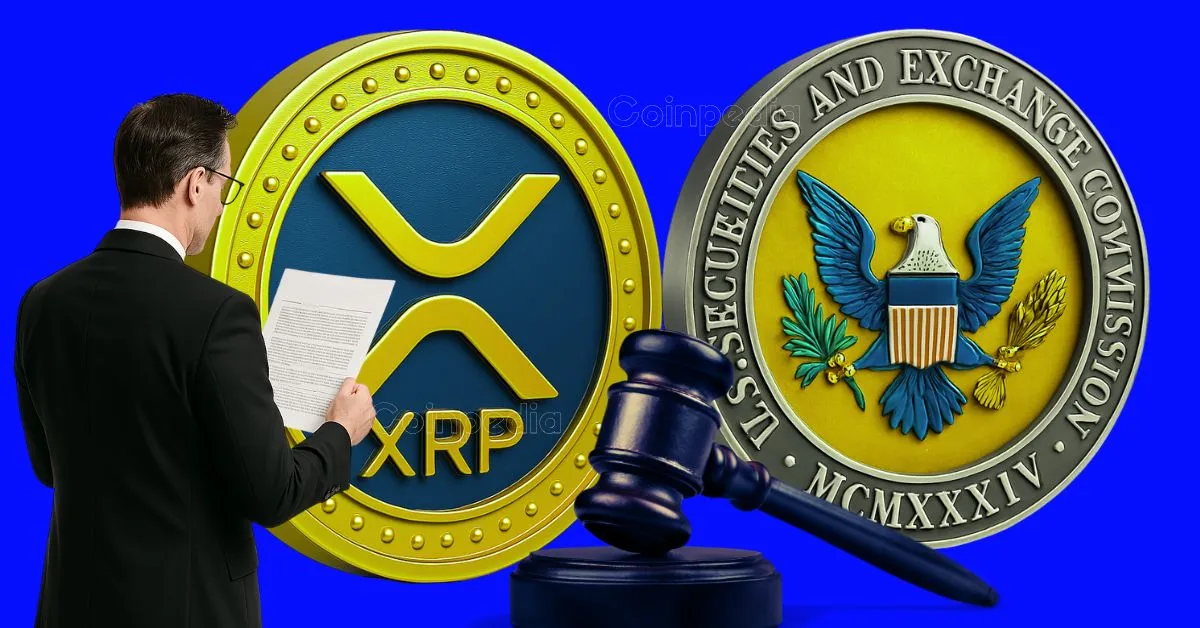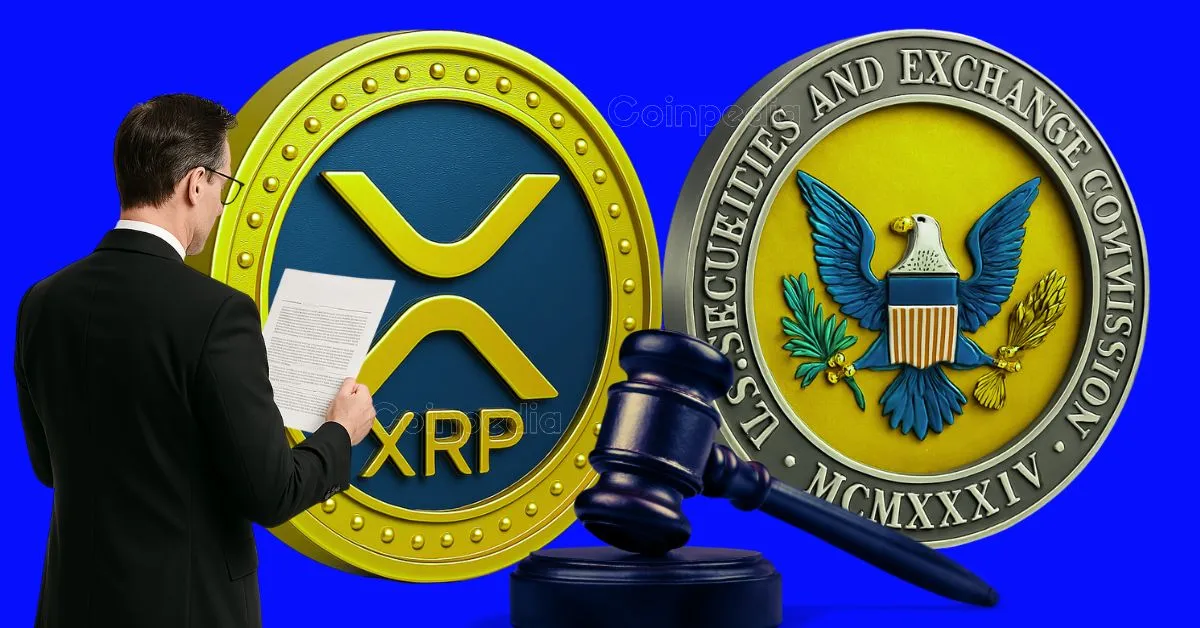The Ripple vs. SEC Case: A Pivotal Moment for Cryptocurrency Regulation
Introduction: The Battle That Redefined Crypto Regulation
The legal showdown between Ripple Labs and the U.S. Securities and Exchange Commission (SEC) has transcended its initial scope, evolving into a defining moment for the cryptocurrency industry. This case, which began in December 2020, has become a litmus test for how regulators approach digital assets, with implications that stretch far beyond the fate of XRP. The conflict has exposed regulatory ambiguities, sparked intense community engagement, and forced stakeholders to confront fundamental questions about the nature of cryptocurrencies and their place in the financial ecosystem.
The Core of the Conflict: Is XRP a Security?
At the heart of the dispute lies a fundamental question: Does XRP, Ripple’s native cryptocurrency, qualify as a security under U.S. law? The SEC’s lawsuit hinges on the application of the Howey Test, a legal framework used to determine whether an asset constitutes an investment contract. The SEC argues that XRP meets the criteria of a security because investors purchased it with the expectation of profiting from Ripple’s efforts, particularly its work in developing cross-border payment solutions.
Ripple, however, has consistently maintained that XRP is a currency, not a security. The company points to XRP’s utility in facilitating transactions on the Ripple network, arguing that its value is derived from its functional use rather than speculative investment. Ripple also contends that the SEC failed to provide clear guidance on how cryptocurrencies should be classified, leaving companies like Ripple in a regulatory gray area.
Key Legal Developments: A Mixed Verdict
The legal proceedings have been marked by several pivotal rulings that have shaped the trajectory of the case. In July 2023, Judge Analisa Torres delivered a landmark decision that offered both relief and uncertainty. The court ruled that XRP sales on secondary markets, such as cryptocurrency exchanges, did not constitute investment contracts because buyers did not have a reasonable expectation that Ripple would use their capital to generate profits. This ruling was a significant victory for Ripple and XRP holders, as it suggested that the SEC’s case was not as airtight as initially believed.
However, the court also found that Ripple’s direct sales of XRP to institutional investors did qualify as securities offerings. This split decision created a complex legal landscape, as the SEC continued to pursue penalties related to these institutional sales. The mixed verdict highlighted the nuances of the case and the challenges of applying traditional securities laws to digital assets.
Ripple’s Defense: Challenging the SEC’s Approach
Ripple’s defense strategy has been multifaceted, extending beyond the Howey Test to challenge the SEC’s broader regulatory approach. One of the company’s key arguments is the lack of fair notice. Ripple contends that the SEC did not provide clear guidance on how cryptocurrencies should be classified, leaving companies like Ripple in a precarious position. This argument underscores the broader debate about regulatory clarity in the crypto space and the need for more consistent enforcement.
Ripple has also emphasized XRP’s utility, arguing that its primary function is to facilitate cross-border payments rather than serve as a speculative investment. By highlighting XRP’s practical applications, Ripple seeks to differentiate it from traditional securities and demonstrate its value as a currency. This defense strategy has resonated with the XRP community, which has rallied behind Ripple’s efforts to clarify the regulatory status of digital assets.
The XRP Community: A Force to Be Reckoned With
The Ripple vs. SEC lawsuit has had a profound impact on the XRP community, which has become a vocal and active participant in the legal proceedings. The initial announcement of the lawsuit triggered a sharp decline in XRP’s price, as major cryptocurrency exchanges delisted the token in response to regulatory uncertainty. However, the community’s resilience and unwavering support for Ripple have been remarkable.
XRP holders have actively engaged in online discussions, filed amicus briefs in support of Ripple’s legal arguments, and lobbied lawmakers to provide greater regulatory clarity for the cryptocurrency industry. The community’s collective identity and shared interest have been instrumental in shaping the narrative around the case and advocating for a favorable outcome.
Potential Settlement and Future Implications
Recent reports suggest that Ripple and the SEC may be nearing a settlement, potentially involving a reduced penalty for Ripple. While the specific terms of a potential settlement remain confidential, the prospect of a resolution has generated considerable excitement within the XRP community. A settlement would likely bring greater regulatory clarity to the status of XRP and could pave the way for its wider adoption by financial institutions and central banks.
However, the broader implications of the Ripple vs. SEC case will continue to resonate within the cryptocurrency industry. The case has highlighted the ongoing challenges of applying existing securities laws to novel digital assets and the need for clearer regulatory frameworks to foster innovation and protect investors. The outcome of the case could set a precedent for other crypto projects facing similar scrutiny from the SEC, shaping the future of crypto regulation and innovation.
The Ripple Effect: A Precedent for the Crypto Industry
The Ripple vs. SEC case carries significant weight beyond the immediate fate of Ripple and XRP. It serves as a crucial test case for how U.S. regulators will approach the classification and regulation of cryptocurrencies in the future. The outcome could set a precedent for other crypto projects facing similar scrutiny from the SEC, influencing the broader regulatory landscape.
If the SEC is successful in its broad interpretation of securities laws, it could potentially subject a wide range of cryptocurrencies to stricter regulations, potentially stifling innovation and driving crypto businesses offshore. Conversely, a decisive victory for Ripple could embolden other crypto projects to challenge the SEC’s authority and advocate for a more tailored regulatory approach that recognizes the unique characteristics of digital assets.
The case also underscores the importance of regulatory clarity for the cryptocurrency industry. The lack of clear guidelines has created uncertainty and confusion for both companies and investors, hindering the development and adoption of innovative blockchain technologies. The Ripple vs. SEC case may ultimately prompt lawmakers and regulators to develop more comprehensive and well-defined rules for the cryptocurrency industry, providing a more stable and predictable environment for businesses to operate.
Beyond the Lawsuit: Ripple’s Vision for the Future
Regardless of the outcome of the lawsuit, Ripple has continued to develop its technology and expand its global network of partners. Ripple’s vision extends beyond simply defending XRP’s status as a non-security. The company aims to build a suite of enterprise solutions that leverage blockchain technology to improve the efficiency and transparency of global payments.
Ripple’s focus on enterprise solutions and cross-border payments positions it to play a significant role in the future of finance. By partnering with financial institutions and developing innovative blockchain-based tools, Ripple seeks to transform the way money moves around the world. This ambition underscores the company’s commitment to building a more efficient and inclusive global financial system.
Conclusion: A Defining Moment for Crypto Regulation
The Ripple vs. SEC saga has been a long and winding road, filled with legal complexities, market volatility, and fervent community engagement. While the end may be in sight, the ultimate outcome remains uncertain. The case has already had a profound impact on Ripple, XRP, and the broader cryptocurrency industry. Regardless of how it concludes, the Ripple vs. SEC case will be remembered as a landmark event that shaped the future of crypto regulation and innovation. Its echoes will reverberate through the industry for years to come, prompting ongoing debates about the role of regulation, the nature of digital assets, and the future of finance. The case has highlighted the need for clearer regulatory frameworks and has underscored the importance of balancing innovation with investor protection. As the cryptocurrency industry continues to evolve, the lessons learned from the Ripple vs. SEC case will serve as a guiding light for regulators, companies, and investors alike.












